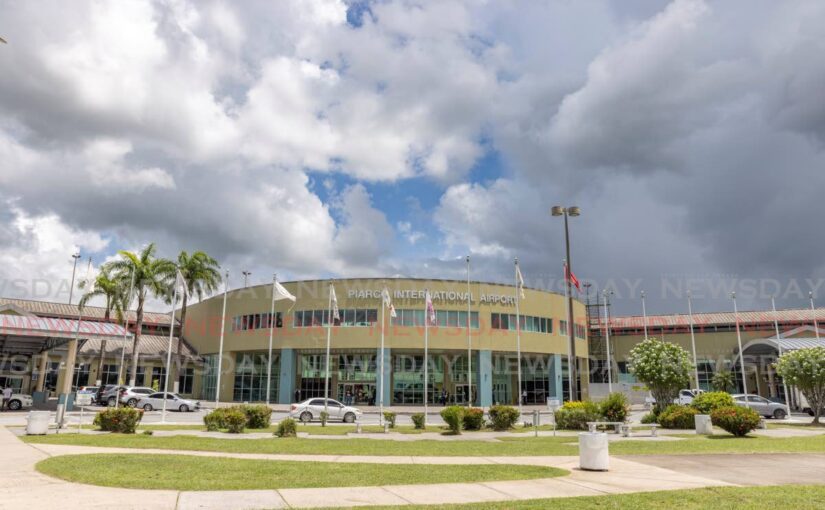INFECTIOUS disease specialist Dr Peter Chin Hong says other than not being vaccinated, the biggest threat to people in this phase of covid19 is...
Vous n'êtes pas connecté
- English
- Français
- عربي
- Español
- Deutsch
- Português
- русский язык
- Català
- Italiano
- Nederlands, Vlaams
- Norsk
- فارسی
- বাংলা
- اردو
- Azərbaycan dili
- Bahasa Indonesia
- Հայերեն
- Ελληνικά
- Bosanski jezik
- українська мова
- Íslenska
- Türkmen, Түркмен
- Türkçe
- Shqip
- Eesti keel
- magyar
- Қазақ тілі
- Kalaallisut ; kalaallit oqaasii
- Lietuvių kalba
- Latviešu valoda
- македонски јазик
- Монгол
- Bahasa Melayu ; بهاس ملايو
- ဗမာစာ
- Slovenščina
- тоҷикӣ ; toğikī ; تاجیکی
- ไทย
- O'zbek ; Ўзбек ; أۇزبېك
- Tiếng Việt
- ភាសាខ្មែរ
- རྫོང་ཁ
- Soomaaliga ; af Soomaali
Rubriques :
 Maroc - NEWSDAY.CO.TT - A la Une - 04/Jul 06:28
Maroc - NEWSDAY.CO.TT - A la Une - 04/Jul 06:28
VIP: Very important protests
Jerome Teelucksingh THIS YEAR is the 90th anniversary of the 1934 protests in TT, but many people, especially our students, are unaware of the fact that the uprisings of 1934, 1935 and 1937 are closely linked. Every year in TT the June 1937 disturbances and the role of Tubal Uriah Butler are celebrated, but there is little or no mention of the 1934 protests. What were the factors that triggered these protests? The agitation of sugar workers in 1934 was part of the overall climate of protest by the working class in the colony during the Depression years. The agony of the Great Depression (1929-1930s) lingered on and added to the misery of the masses. Rampant poverty among labourers contributed to malnutrition, poor sanitation, illiteracy and unemployment. Housing provisions for workers in the oil and sugar industries were in a deplorable state. From 1933-1935, unemployed Afro-Trinidadians in Port of Spain were mobilised in hunger marches under the leadership of Elma Francois, Jim Headley, Jim Barrette and Dudley Mahon of the National Unemployed Movement (NUM). The name of this group was later changed to the Negro Welfare Cultural and Social Association (NWCSA). ON Bolland argued that the NUM played an instrumental role in mobilising workers and began “a new, radical labour politics.” During 1934 the NUM played a role in spearheading and influencing demonstrations among discontented workers. The NUM contacted the sugar workers and was informed by Poolbasie, an outspoken Indo-Trinidadian worker, of the problems facing the workers. These included high rents of barracks, high levels of unemployment, estate drivers who exploited young female sugar workers, increased tasks, and a drought which made the land unworkable. The protest by 800 sugar workers on July 6, 1934, at Brechin Castle and Esperanza Estates, later joined by frustrated workers from the central and northern estates, set in motion a series of civil demonstrations. The police sought to quell the outburst but were attacked. After the violence subsided, 12 people were arrested. The domino effect was evident, as almost 15,000 sugar workers in Tunapuna, Chaguanas, Couva and San Fernando staged similar protests. Fortunately, nobody was killed, though many protesters were jailed or fined. The spontaneity of the disturbances and the fact that no leaders emerged could be a reason why these working-class disturbances tend to be forgotten by the public. The UWI's Bridget Brereton is accurate in describing the action of the sugar workers in 1934 as “the politics of the streets” and “a watershed in Indian participation in labour movements in Trinidad.” This development in 1934 introduced a new factor in the challenge of the working class against capitalist domination. Although thwarted by police, the proposed hunger march of sugar workers on July 20, 1934, from Caroni to Port of Spain, planned to unite Indo-Trinidadian sugar workers and Afro-Trinidadian hunger marchers, of the NUM, in a massive city demonstration. Although the agony of the Indo-Trinidadian working class found expression in the disturbances of 1934, they did not seem threatening to the government and the employer class in the colony, unlike the 1919-1920 strikes led by the urban Afro-Trinidadian working class, whose potential for societal disruption was always feared by the white elite. It was the attempt at racial and class unity of the protests which the colonial authorities sought to suppress. The 1934 sugar-belt unrest revealed the continued isolation of Indo-Trinidadian workers, whose interests were ignored by the urban working-class leadership of the Trinidad Workingmen’s Association (TWA), whose president was Capt Arthur Cipriani. The unrest among sugar workers in central Trinidad, the hunger marches of the unemployed in Port of Spain, coupled with the Apex oil strike of 1935 (in south Trinidad) unleashed torrents of anger and frustration against capitalist exploitation and governmental apathy as social conditions worsened. The protests in TT were part of the regional disturbances during the 1930s that affected the British West Indian colonies. There were protests in 1934 in Belize (then known as British Honduras). The causes of this protest included low wages, poverty, unemployment and neglect by colonial authorities. In 1935 there was a labour rebellion in St Kitts and strikes in St Vincent and St Lucia. These were soon followed by disturbances by workers in Barbados and the Bahamas in 1937 and Jamaica in 1938. It seems odd that these very important protests of 1934 are absent from the textbooks in primary and secondary schools in TT. The greater tragedy is that 1934 is not in the public memory. The post VIP: Very important protests appeared first on Trinidad and Tobago Newsday.
Articles similaires
Revenue decline: Tobago’s costly problem
Dr Rita Pemberton THE DECLINE and ultimate crash of the sugar industry in Tobago had lasting consequences for the island and its administration. The...
Judge orders Hinds to reconsider Pakistani woman’s residency application
A HIGH COURT judge has ordered the Minister of National Security to reconsider a Pakistani woman’s permanent residency application made more than a...
You must live to tell his story
THE EDITOR: On December 6, 2023, Dr Refaat Alareer, writer, poet, activist and professor at the Islamic University in Gaza, was killed by an Israeli...
CAL pilots protest, airline says no flights affected
OVER 30 Caribbean Airlines pilots represented by the TT Airline Pilots Association (TTALPA) protested at the Piarco International Airport on October...
Justice for the dead?
Jerome Teelucksingh THE NATIONAL Day for Truth and Reconciliation is observed in North America on September 30. The day originated in Canada with...
SEZs will make it easier to attract local, foreign investment
The recently proclaimed Special Economic Zone (SEZ) Act, 2022 will make it easier for local and foreign private sector interests to invest in TT. It...
Students express interest in budget process
Concerns about government’s sources of funds, how these are spent and how people can become involved in the budgeting process were some of the...
Imbert unveils $59.7b budget after 5-hour speech: Pay rise for government workers
FINANCE Minister Colm Imbert has announced a pay increase for public-sector workers, measures to benefit other groups, fight crime and ensure...
Dexter Kahn reflects on 42 years of culture, Notting Hill carnival
BAVINA SOOKDEO “I want my people from around the world to visit (Trinidad and Tobago) and support their culture during Carnival time. We should be...
Les derniers communiqués
-
Aucun élément










